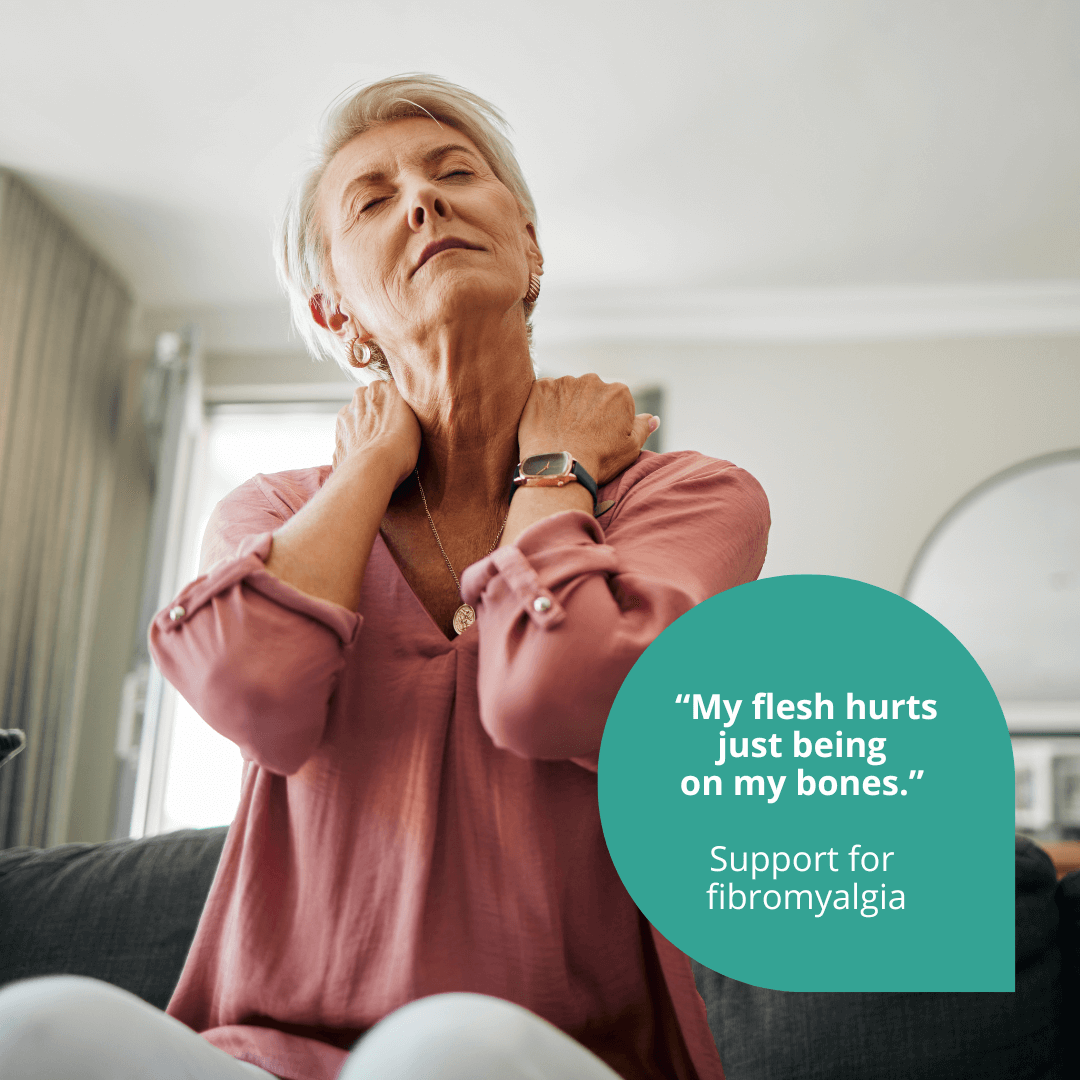Fibromyalgia
Fibromyalgia treatment in Daisy Hill, North Lakes & Eight Mile Plains
Fibromyalgia is a complex condition and living with it can be quite frustrating at times. It affects about 2-5% of people, most commonly middle-aged women.
Fibromyalgia symptoms
Symptoms of fibromyalgia vary from one person to another but often include:
- Widespread pain and stiffness for at last 3 months
- Sensitivity to pain, temperature, light, smell and noise
- Fatigue – yet, paradoxically, fibromyalgia can also cause trouble sleeping
- Difficulties with concentration and memory.


Alongside those ‘classic’ symptoms, people with fibromyalgia often also experience:
- Anxiety and depression
- Irritable bowel syndrome
- Headaches
- Chronic fatigue syndrome
- Tingling or numbness in the arms and legs
- Menstrual cramps or pain
- Restless legs.
It works both ways too. People with mood disorders or pain conditions like arthritis are more likely to develop fibromyalgia.
You may find that there are times when fibromyalgia is in the background and other times when it flares up and significantly impacts your activities. Factors such as stress, illness, travel or overexertion may worsen your symptoms.
Living with fibromyalgia is not easy, as journalist Nicky Marshall explains,
For me, a flare-up starts with a wave of exhaustion that can swamp me within seconds, accompanied by a brain fog so dense I might struggle to speak. Then the pain begins. It’s a rusty feeling in my hands and feet that moves up and seeps into my wrists and ankles, elbows and knees, shoulders and hips. There are muscle aches too, that trampled feeling you get as you’re coming down with a cold or flu.
But aside from these flares, a low hum of pain is ever present…Much of the time it feels as though everything is uphill; as though my flesh hurts just being on my bones. It’s grinding and relentless and exhausting.
I can think of just two days this year that were pain-free. They were golden.
Fibromyalgia is complex and we are still exploring its causes. So far, we’ve learnt that it involves changes in the central nervous system which amplify pain signals. The neural pathways that transmit and receive pain signals may be different in people with fibromyalgia. This creates a sense of pain – and may also contribute to fatigue, disturbed sleep and cognitive difficulties.
Other influences include:
- Environmental factors
- Genetics – it tends to run in families
- Personal health history – if you have an existing pain condition or mental health condition, you’re more likely to develop fibromyalgia.
There is no cure for fibromyalgia. Treatment focuses on relieving symptoms and improving quality of life.
Treatment is multi-faceted and may include:
- Psychological support to change thinking patterns
- Medication to aid sleep or ease pain
- Dietary changes to manage weight and ensure good nutrition
- Complementary treatments such as yoga, acupuncture and naturopathy
- Physiotherapy to manage pain.
How The Brisbane Spine Clinic Can Help
- Helping you understand the condition, both in general terms and in the particular ways it affects you
- Helping you calibrate your activity levels so that you can achieve some goals without exacerbating your condition
- Creating a tailored exercise program to help reduce pain and tiredness while boosting energy, mood and sleep
- Providing hands-on treatment such as deep tissue massage
- Teaching you relaxation techniques to help reduce the effects of stress.
Such treatment can help to ease your symptoms and improve your quality of life.
Request an appointment
More services
Our Physiotherapists
Yu-Tsung (Justin) Lin
Co-Founder and Senior Musculoskeletal Consultant
Sang Bin (Leo) Hyun
Senior Spinal Consultant
Chun Man (Kelvin) Choi
Physiotherapist and Accredited Exercise Physiologist
Gun (Kevin) Kang
Physiotherapist
Marco Lin
Physiotherapist & Clinical Exercise Physiologist
Raymond Sidhu
Physiotherapist
Michael Pham
Physiotherapist
Matthew Choi
Physiotherapist
Disclaimer
All information is general in nature. Patients should consider their own personal circumstances and seek a second opinion








